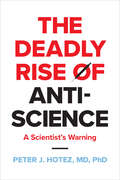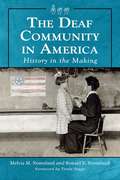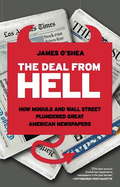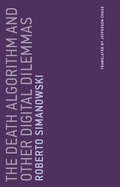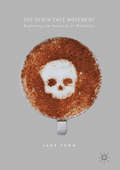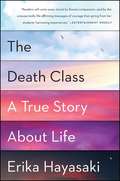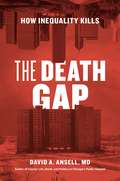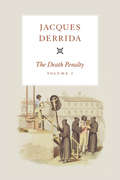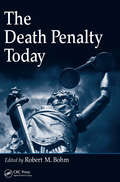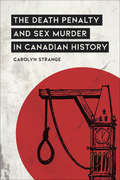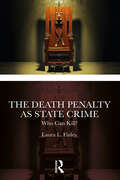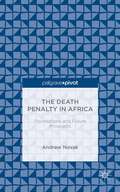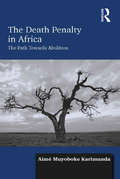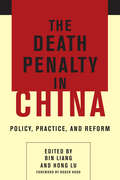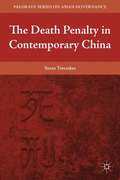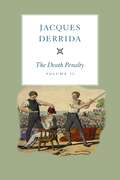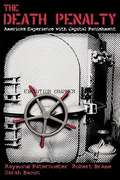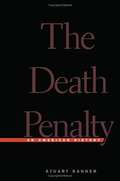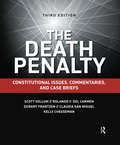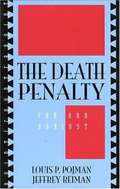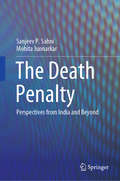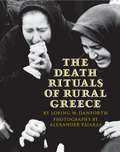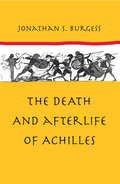- Table View
- List View
The Deaf Community in America: History in the Making
by Melvia Nomeland Ronald NomelandThe deaf community in the West has endured radical changes in the past centuries. This work of history tracks the changes both in the education of and the social world of deaf people through the years. Topics include attitudes toward the deaf in Europe and America and the evolution of communication and language. Of particular interest is the way in which deafness has been increasingly humanized, rather than medicalized or pathologized, as it was in the past. Successful contributions to the deaf and non-deaf world by deaf individuals are also highlighted. Instructors considering this book for use in a course may request an examination copy here.
The Deal from Hell: How Moguls and Wall Street Plundered Great American Newspapers
by James O'SheaIn 2000, after the Tribune Company acquired Times Mirror Corporation, it comprised the most powerful collection of newspapers in the world. How then did Tribune nosedive into bankruptcy and public scandal? In The Deal From Hell, veteran Tribune and Los Angeles Times editor James O'Shea takes us behind the scenes of the decisions that led to disaster in boardrooms and newsrooms from coast to coast, based on access to key players, court testimony, and sworn depositions.The Deal From Hell is a riveting narrative that chronicles how news industry executives and editors--convinced they were acting in the best interests of their publications--made a series of flawed decisions that endangered journalistic credibility and drove the newspapers, already confronting a perfect storm of political, technological, economic, and social turmoil, to the brink of extinction.
The Death Algorithm and Other Digital Dilemmas (Untimely Meditations #14)
by Roberto SimanowskiProvocative takes on cyberbullshit, smartphone zombies, instant gratification, the traffic school of the information highway, and other philosophical concerns of the Internet age. In The Death Algorithm and Other Digital Dilemmas, Roberto Simanowski wonders if we are on the brink of a society that views social, political, and ethical challenges as technological problems that can be fixed with the right algorithm, the best data, or the fastest computer. For example, the “death algorithm ” is programmed into a driverless car to decide, in an emergency, whether to plow into a group of pedestrians, a mother and child, or a brick wall. Can such life-and-death decisions no longer be left to the individual human? In these incisive essays, Simanowski asks us to consider what it means to be living in a time when the president of the United States declares the mainstream media to be an enemy of the people—while Facebook transforms the people into the enemy of mainstream media. Simanowski describes smartphone zombies (or “smombies”) who remove themselves from the physical world to the parallel universe of social media networks; calls on Adorno to help parse Trump's tweeting; considers transmedia cannibalism, as written text is transformed into a postliterate object; compares the economic and social effects of the sharing economy to a sixteen-wheeler running over a plastic bottle on the road; and explains why philosophy mat become the most important element in the automotive and technology industries.
The Death Café Movement: Exploring the Horizons of Mortality
by Jack FongThis sociological work examines the phenomenon of the Death Café, a regular gathering of strangers from all walks of life who engage in “death talk” over coffee, tea, and desserts. Using insightful theoretical frameworks, Fong explores the common themes that constitute a “death identity” and reveals how Café attendees are inspired to live in light of death because of death. Fong examines how the participants’ embrace of self-sovereignty and confrontation of mortality revive their awareness of and appreciation for shared humanity. While divisive identity politics continue to foster neo-tribalisms and the construction of myriad “others,” Fong makes visible how those who participate in Death Cafés end up building community while being inspired toward living more fulfilling lives. Through death talk unfettered from systemic control, they end up feeling more agency over their own lived lives as well as being more conscious of the possibility of a good death. According to Fong, participants in this phenomenon offer us a sublime way to confront the facticity of our own demise—by gathering as one.
The Death Class: A True Story About Life
by Erika HayasakiThe poignant, “powerful” (The Boston Globe) look at how to appreciate life from an extraordinary professor who teaches about death: “Poetic passages and assorted revelations you’ll likely not forget” (Chicago Tribune).Why does a college course on death have a three-year waiting list? When nurse Norma Bowe decided to teach a course on death at a college in New Jersey, she never expected it to be popular. But year after year students crowd into her classroom, and the reason is clear: Norma’s “death class” is really about how to make the most of what poet Mary Oliver famously called our “one wild and precious life.” Under the guise of discussions about last wills and last breaths and visits to cemeteries and crematoriums, Norma teaches her students to find grace in one another. In The Death Class, award-winning journalist Erika Hayasaki followed Norma for more than four years, showing how she steers four extraordinary students from their tormented families and neighborhoods toward happiness: she rescues one young woman from her suicidal mother, helps a young man manage his schizophrenic brother, and inspires another to leave his gang life behind. Through this unorthodox class on death, Norma helps kids who are barely hanging on to understand not only the value of their own lives, but also the secret of fulfillment: to throw yourself into helping others. Hayasaki’s expert reporting and literary prose bring Norma’s wisdom out of the classroom, transforming it into an inspiring lesson for all. In the end, Norma’s very own life—and how she lives it—is the lecture that sticks. “Readers will come away struck by Bowe’s compassion—and by the unexpectedly life-affirming messages of courage that spring from her students’ harrowing experiences” (Entertainment Weekly).
The Death Gap: How Inequality Kills
by David A. AnsellWe hear plenty about the widening income gap between the rich and the poor in America and about the expanding distance separating the haves and the have-nots. But when detailing the many things that the poor have not, we often overlook the most critical—their health. The poor die sooner. Blacks die sooner. And poor urban blacks die sooner than almost all other Americans. In nearly four decades as a doctor at hospitals serving some of the poorest communities in Chicago, David Ansell has witnessed firsthand the lives behind these devastating statistics. In The Death Gap, he gives a grim survey of these realities, drawn from observations and stories of his patients. While the contrasts and disparities among Chicago’s communities are particularly stark, the death gap is truly a nationwide epidemic—as Ansell shows, there is a thirty-five-year difference in life expectancy between the healthiest and wealthiest and the poorest and sickest American neighborhoods. If you are poor, where you live in America can dictate when you die. It doesn’t need to be this way; such divisions are not inevitable. Ansell calls out the social and cultural arguments that have been raised as ways of explaining or excusing these gaps, and he lays bare the structural violence—the racism, economic exploitation, and discrimination—that is really to blame. Inequality is a disease, Ansell argues, and we need to treat and eradicate it as we would any major illness. To do so, he outlines a vision that will provide the foundation for a healthier nation—for all. Inequality is all around us, and often the distance between high and low life expectancy can be a matter of just a few blocks. But geography need not be destiny, urges Ansell. In The Death Gap he shows us how we can face this national health crisis head-on and take action against the circumstances that rob people of their dignity and their lives.
The Death Penalty
by Jacques DerridaIn this newest installment in Chicago s series of Jacques Derrida s seminars, the renowned philosopher attempts one of his most ambitious goals: the first truly philosophical argument against the death penalty. While much has been written against the death penalty, Derrida contends that Western philosophy is massively, if not always overtly, complicit with a logic in which a sovereign state has the right to take a life. Haunted by this notion, he turns to the key places where such logic has been established and to the place it has been most effectively challenged: literature. With his signature genius and patient yet dazzling readings of an impressive breadth of texts, Derrida examines everything from the Bible to Plato to Camus to Jean Genet, with special attention to Kant and post World War II juridical texts, to draw the landscape of death penalty discourses. Keeping clearly in view the death rows and execution chambers of the United States, he shows how arguments surrounding cruel and unusual punishment depend on what he calls an anesthesial logic, which has also driven the development of death penalty technology from the French guillotine to lethal injection. Confronting a demand for philosophical rigor, he pursues provocative analyses of the shortcomings of abolitionist discourse. Above all, he argues that the death penalty and its attendant technologies are products of a desire to put an end to one of the most fundamental qualities of our finite existence: the radical uncertainty of when we will die. Arriving at a critical juncture in history especially in the United States, one of the last Christian-inspired democracies to resist abolition "The Death Penalty" is both a timely response to an important ethical debate and a timeless addition to Derrida s esteemed body of work. "
The Death Penalty Today
by Robert M. BohmMore than 30 years after the US Supreme Court reinstated the death penalty, it is still plagued with egregious problems. Issues of wrongful conviction, inhumane practices, and its efficacy as a deterrent are hotly debated topics. As of August 2007, two-thirds of the worlds countries have abolished the death penalty. Today, the US falls alongside I
The Death Penalty and Sex Murder in Canadian History (Osgoode Society for Canadian Legal History)
by Carolyn StrangeFrom Confederation to the partial abolition of the death penalty a century later, defendants convicted of sexually motivated killings and sexually violent homicides in Canada were more likely than any other condemned criminals to be executed for their crimes. Despite the emergence of psychiatric expertise in criminal trials, moral disgust and anger proved more potent in courtrooms, the public mind, and the hearts of the bureaucrats and politicians responsible for determining the outcome of capital cases. Wherever death has been set as the ultimate criminal penalty, the poor, minority groups, and stigmatized peoples have been more likely to be accused, convicted, and executed. Although the vast majority of convicted sex killers were white, Canada’s racist notions of "the Indian mind" meant that Indigenous defendants faced the presumption of guilt. Black defendants were also subjected to discriminatory treatment, including near lynchings. In debates about capital punishment, abolitionists expressed concern that prejudices and poverty created the prospect of wrongful convictions. Unique in the ways it reveals the emotional drivers of capital punishment in delivering inequitable outcomes, The Death Penalty and Sex Murder in Canadian History provides a thorough overview of sex murder and the death penalty in Canada. It serves as an essential history and a richly documented cautionary tale for the present.
The Death Penalty as State Crime: Who Can Kill?
by Laura L. FinleyThis book offers a new perspective on the death penalty in the US, examining capital punishment as state crime or state-produced harm. It addresses the death penalty, showing how the state not only authorizes a system and a practice that tortures human beings, but is also aware of its deep flaws and chooses not to address them.Building on the vast literature on state crime together with case examples and interviews with activists seeking to abolish the death penalty, this book offers a new and innovative critique of state punishment in the US. It draws on a range of issues and topics such as arbitrariness, inadequate counsel, racial bias, mental illness, innocence, conditions on death row, the protocols, and the equipment used for executions. It emphasizes the need for abolition of the death penalty and highlights efforts being made to do so, with a focus on successful elements of abolition campaigns.The Death Penalty as State Crime is essential reading for all those engaged with capital punishment, human rights, and state crime, and will be of interest to criminologists, sociologists, legal scholars and political scientists alike.
The Death Penalty in Africa: Foundations and Future Prospects
by Andrew NovakIn recent years the death penalty has sharply declined across Africa, but this trend belies actual public opinion and the retributivist sentiments held by political elites. This study explains capital punishment in Africa in terms of culturally specific notions of life and death as well as the colonial-era imposition of criminal and penal policy.
The Death Penalty in Africa: The Path Towards Abolition
by Aimé Muyoboke KarimundaHuman development is not simply about wealth and economic well-being, it is also dependent upon shared values that cherish the sanctity of human life. Using comparative methods, archival research and quantitative findings, this book explores the historical and cultural background of the death penalty in Africa, analysing the law and practice of the death penalty under European and Asian laws in Africa before independence. Showing progressive attitudes to punishment rooted in both traditional and modern concepts of human dignity, Aimé Muyoboke Karimunda assesses the ground on which the death penalty is retained today. Providing a full and balanced appraisal of the arguments, the book presents a clear and compelling case for the total abolition of the death penalty throughout Africa. This book is essential reading for human rights lawyers, legal anthropologists, historians, political analysts and anyone else interested in promoting democracy and the protection of fundamental human rights in Africa.
The Death Penalty in China
by Hong Lu Roger Hood Bin LiangChina currently leads the world in death sentences and executions, making it a primary target for the global abolition movement. While the results have been subtle, anti-death penalty advocates are beginning to influence Chinese attitudes toward the practice, as well as law. Conducting an interdisciplinary and comparative study of China's death penalty as the country heads toward reform, this book explains what it took to advance reforms to limit death sentences and executions, while identifying the challenges that prevent more extensive progress. Featuring experts from Europe, Australia, Japan, China, and the United States, this collection follows changes in the theory and policy of China's death penalty from the Mao era (1949-1979) through the Deng era (1980-1997) up to the present day. Using empirical data, such as capital offender and offense profiles, temporal and regional variations in capital punishment, and the impact of social media on public opinion and reform, contributors relay both the particular character of China's death penalty practices and the incremental changes that indicate reform. They then compare the Chinese experience to other countries throughout Asia and the world, showing how change can be implemented even within a non-democratic and rigid political system, but also the dangers of pushing policies that society may not be ready to embrace.
The Death Penalty in China: Policy, Practice, and Reform
by Lu Liang Bin HongFeaturing experts from Europe, Australia, Japan, China, and the United States, this collection of essays follows changes in the theory and policy of China's death penalty from the Mao era (1949–1979) through the Deng era (1980–1997) up to the present day. Using empirical data, such as capital offender and offense profiles, temporal and regional variations in capital punishment, and the impact of social media on public opinion and reform, contributors relay both the character of China's death penalty practices and the incremental changes that indicate reform. They then compare the Chinese experience to other countries throughout Asia and the world, showing how change can be implemented even within a non-democratic and rigid political system, but also the dangers of promoting policies that society may not be ready to embrace.
The Death Penalty in Contemporary China
by Susan TrevaskesChina's infamous death penalty record is the product of firm Party-state control and policy-setting. Though during the 1980s and 1990s, the Party's emphasis was on "kill many," in the 2000s the direction of policy began to move toward "kill fewer. " This book details the policies, institutions, and story behind the reform of the death penalty.
The Death Penalty, Volume II
by Jacques Derrida Elizabeth RottenbergIn the first volume of his extraordinary analysis of the death penalty, Jacques Derrida began a journey toward an ambitious end: the first truly philosophical argument against the death penalty. Exploring an impressive breadth of thought, he traced a deeply entrenched logic throughout the whole of Western philosophy that has justified the state’s right to take a life. He also marked literature as a crucial place where this logic has been most effectively challenged. In this second and final volume, Derrida builds on these analyses toward a definitive argument against capital punishment. Of central importance in this second volume is Kant’s explicit justification of the death penalty in the Metaphysics of Morals. Thoroughly deconstructing Kant’s position—which holds the death penalty as exemplary of the eye-for-an-eye Talionic law—Derrida exposes numerous damning contradictions and exceptions. Keeping the current death penalty in the United States in view, he further explores the “anesthesial logic” he analyzed in volume one, addressing the themes of cruelty and pain through texts by Robespierre and Freud, reading Heidegger, and—in a fascinating, improvised final session—the nineteenth-century Spanish Catholic thinker Donoso Cortés. Ultimately, Derrida shows that the rationality of the death penalty as represented by Kant involves an imposition of knowledge and calculability on a fundamental condition of non-knowledge—that we don’t otherwise know what or when our deaths will be. In this way, the death penalty acts out a phantasm of mastery over one’s own death. Derrida’s thoughts arrive at a particular moment in history: when the death penalty in the United States is the closest it has ever been to abolition, and yet when the arguments on all sides are as confused as ever. His powerful analysis will prove to be a paramount contribution to this debate as well as a lasting entry in his celebrated oeuvre.
The Death Penalty: America's Experience with Capital Punishment
by Raymond Paternoster Robert Brame Sarah BaconThe authors present a balanced perspective that focuses on both the arguments for and against capital punishment--one of the most controversial issues in the criminal justice system today.
The Death Penalty: An American History
by Stuart BannerNow, for the first time, we have a comprehensive history of the death penalty in the United States. Stuart Banner tells the story of how, over four centuries, dramatic changes have taken place in the ways capital punishment has been administered and experienced. Banner moves beyond the debates to give us an unprecedented understanding of the many meanings of capital punishment in America.
The Death Penalty: Constitutional Issues, Commentaries, and Case Briefs
by Rolando V. del Carmen Scott Vollum Durant Frantzen Claudia San Miguel Kelly CheesemanThe Death Penalty, Third Edition, brings together all the legal issues related to the death penalty and provides case briefs for the most important United States Supreme Court death penalty cases. No other book available brings together a discussion of the major constitutional issues surrounding the death penalty with a broad array of associated case briefs. The authors classify cases according to legal issues and provide a commentary on the various sub-topics, presenting legal materials in an easily understood form. Though the primary audiences of the book are undergraduates in criminal justice programs and practitioners in the corrections and justice systems, the book will also prove useful to anyone who has an interest in the death penalty, the criminal justice system, or the United States Constitution. Every chapter starts with commentaries regarding general case law in a sub-topic, such as aggravating and mitigating factors, followed by a chart of the cases briefed in the chapter, and then the case briefs. These case briefs acquaint the reader with Supreme Court cases by summarizing facts, issues, reasons, and holdings. The Death Penalty, Third Edition , is a succinct, trusted guide to the law of capital punishment in the United States.
The Death Penalty: For and Against
by Jeffrey Reiman Louis PojmanTwo distinguished social and political philosophers take opposing positions in this highly engaging work. Louis Pojman justifies the practice of execution by appealing to the principle of retribution while Jeffrey Reiman argues that although the death penalty is a just punishment for murder, we are not morally obliged to execute murderers.
The Death Penalty: Perspectives from India and Beyond
by Mohita Junnarkar Sanjeev P. SahniThis book offers a broad overview of public attitudes to the death penalty in India. It examines in detail the progress made by international organizations worldwide in their efforts to abolish the death penalty and provides statistics from various countries that have already abolished it. The book focuses on four main aspects: the excessive cost and poor use of funds; wrongful executions of innocent people; the death penalty’s failure as an efficient deterrent; and the alternative sentence of life imprisonment without parole. In closing, the book analyses the current debates on capital punishment around the globe and in the Indian context. Based on public opinion surveys, the book is essential reading for all those interested in India, its government, criminal justice system, and policies on the death penalty and human rights.
The Death Rituals of Rural Greece
by Loring M. Danforth Alexander TsiarasThis compelling text and dramatic photographic essay convey the emotional power of the death rituals of a small Greek village--the funeral, the singing of laments, the distribution of food, the daily visits to the graves, and especially the rite of exhumation. These rituals help Greek villagers face the universal paradox of mourning: how can the living sustain relationships with the dead and at the same time bring them to an end, in order to continue to live meaningfully as members of a community? That is the villagers' dilemma, and our own. <P><P>Thirty-one moving photographs (reproduced in duotone to do justice to their great beauty) combine with vivid descriptions of the bereaved women of "Potamia" and with the words of the funeral laments to allow the reader an unusual emotional identification with the people of rural Greece as they struggle to integrate the experience of death into their daily lives. Loring M. Danforth's sensitive use of symbolic and structural analysis complements his discussion of the social context in which these rituals occur. He explores important themes in rural Greek life, such as the position of women, patterns of reciprocity and obligation, and the nature of social relations within the family.
The Death Rituals of Rural Greece
by Loring M. Danforth Alexander TsiarasThis compelling text and dramatic photographic essay convey the emotional power of the death rituals of a small Greek village--the funeral, the singing of laments, the distribution of food, the daily visits to the graves, and especially the rite of exhumation. These rituals help Greek villagers face the universal paradox of mourning: how can the living sustain relationships with the dead and at the same time bring them to an end, in order to continue to live meaningfully as members of a community? That is the villagers' dilemma, and our own. Thirty-one moving photographs (reproduced in duotone to do justice to their great beauty) combine with vivid descriptions of the bereaved women of "Potamia" and with the words of the funeral laments to allow the reader an unusual emotional identification with the people of rural Greece as they struggle to integrate the experience of death into their daily lives. Loring M. Danforth's sensitive use of symbolic and structural analysis complements his discussion of the social context in which these rituals occur. He explores important themes in rural Greek life, such as the position of women, patterns of reciprocity and obligation, and the nature of social relations within the family.
The Death and Afterlife of Achilles
by Jonathan S. BurgessAchilles’ death—by an arrow shot through the vulnerable heel of the otherwise invincible mythic hero—was as well known in antiquity as the rest of the history of the Trojan War. However, this important event was not described directly in either of the great Homeric epics, the Iliad or the Odyssey. Noted classics scholar Jonathan S. Burgess traces the story of Achilles as represented in other ancient sources in order to offer a deeper understanding of the death and afterlife of the celebrated Greek warrior. Through close readings of additional literary sources and analysis of ancient artwork, such as vase paintings, Burgess uncovers rich accounts of Achilles’ death as well as alternative versions of his afterlife. Taking a neoanalytical approach, Burgess is able to trace the influence of these parallel cultural sources on Homer’s composition of the Iliad. With his keen, original analysis of hitherto untapped literary, iconographical, and archaeological sources, Burgess adds greatly to our understanding of this archetypal mythic hero.
